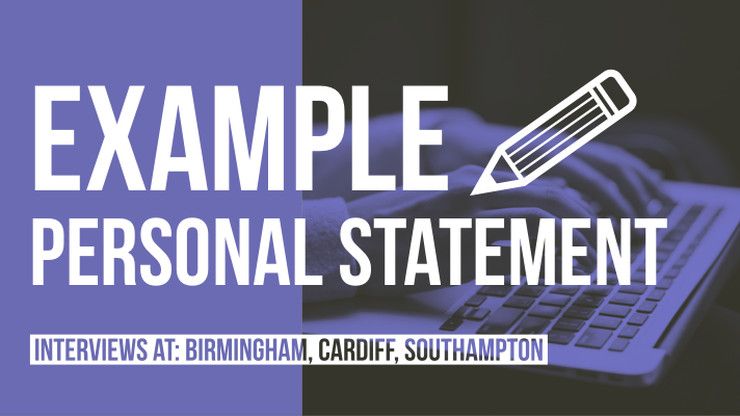This personal statement was used by a current medical student to apply to medical school at: the University of Birmingham, the University of Southampton, Cardiff University, and the University of Bristol. The application cycle was 2016 entry. The applicant received interview offers at Birmingham, Bristol and Cardiff. The personal statement scored poorly at Bristol.
Feedback from Bristol: "You scored well on demonstrating a wide range of interests but less well on showing that you have a realistic interest in a career in Medicine.
Your overall score was 72.43% and the threshold to be invited for interview was 77.09%."
Clearly, this personal statement is not 'perfect' - but none ever will be! Each medical school is looking for something different. Be careful not to plagiarise personal statements you read online - UCAS will detect this.
Personal statement (642 words)
3.5 million people in the UK affected by type 2 diabetes, and 2.3 million people in the UK affected by coronary heart disease. Studying diseases like these in Biology has fuelled my interest in health and disease, motivating me to study Medicine. I have also enjoyed linking theoretical chemistry to its applications in health, such as enantiomers and drugs. My enthusiasm for medicine is driven by my interest in health related science and by the fulfilment of ultimately using my knowledge to improve the lives of others.
To begin to appreciate the diversity of the medical profession, I spent a day shadowing a research doctor investigating a new tuberculosis vaccine. Watching the clinical trials helped me to appreciate the importance of putting patients at ease, so they were more likely to confide in their doctor. Later, whilst shadowing a knee surgeon for four days, I witnessed the importance of decision-making, as every patient has different expectations for their recovery. I found it fascinating how patients with similar injuries could be treated differently with either surgery or physiotherapy. Attending several medical career days also demonstrated to me how, as a doctor, I would not be able to cure every patient and that I would have to develop the resilience to deal with this.
Shadowing a GP for a week introduced me to the holistic approach to patient care, as patients often rely on their GP for emotional support as well as diagnosis and treatment. It was moving to see how the empathy and emotional support of the doctor encouraged a patient with sleeping issues to open up about her previous struggles with depression. This was important as it allowed the doctor to discuss her ‘normal’ test results with sensitivity, aware that the patient was probably suffering with depression again, rather than any other condition. Additionally, volunteering weekly for seven months with adults with learning disabilities has been hugely rewarding, enabling me to better understand the impacts of lifelong impairment, and the necessity for lifelong living support.
When studying coronary heart disease and its risk factors in Biology I was particularly interested in the link between diet and health, so I was excited to attend a lecture on the importance of milk in our diet. The link between the cultural shifts in diet and the response of the medical profession especially interested me. I then further explored this idea in the Student BMJ, where the link between sugary drinks and type 2 diabetes was discussed and the possible public health responses considered.
Whilst reading 'Bad Science' I found Ben Goldacre's discussion of homeopathy's efficacy and its link to the placebo effect very engaging; this led me to consider whether an ethical placebo would ever be possible.
To maintain a healthy work-life balance I participate in the debate club at school, finding that debating alleviates stress as well as developing my reasoning skills. At home, cycling in the local forest helps to clear my mind. Through my roles as a prefect for Year 7 and as a Young Leader for three years at Brownies, I have developed my leadership and communication styles by adapting them to different audiences. My involvement in Young Enterprise and organising prom has demonstrated the difficulties of decision-making within a team and how sometimes compromise is crucial. This August, I was thrilled to represent the UK in Japan at the World Scout Jamboree alongside 34,000 young people. Preparing for this by fundraising £3250 and attending training weekends has taught me exceptional time-management and organisation skills.
I believe I have the determination and commitment, together with the academic capability required for medicine. The prospect of a career in medicine excites me and I am ready to embrace the challenges it presents, in particular the lifelong learning. Most importantly, I am looking forward to making a real difference in the lives of others.
